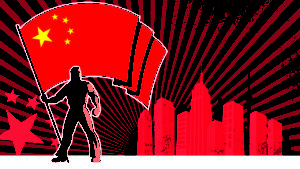Others drew comparisons with 1930s Germany, where Nazi student groups burned “un-German” books before the regime targeted ethnic minorities. Still others pointed out an anecdote nearer to home: The founder of modern China, Mao Zedong, joked to colleagues at a 1958 Communist Party conference that he buried 46,000 scholars compared with the Qin emperor’s 460.

National Endowment for Democracy
The burning of subversive literature is a telling sign of regime fragility, observers suggest. Similarly….
The targeting of the NGOs is also telling because it reveals a deep insecurity within the Chinese Communist Party. Since the 1990s, desperate leaders have made scapegoats of organizations such as Freedom House and the National Endowment for Democracy. This is almost always a response to internal challenges to an autocrat’s legitimacy, Bloomberg’s Eli Lake writes. The tactic has two purposes: to make U.S. programs that support democratic opposition toxic; and to make popular unrest appear to be the result of U.S. meddling.








